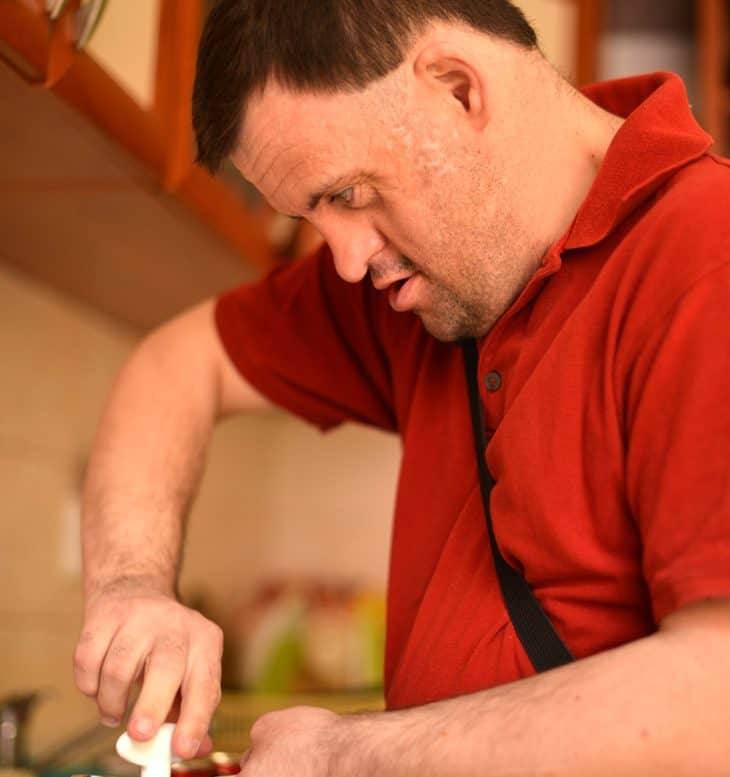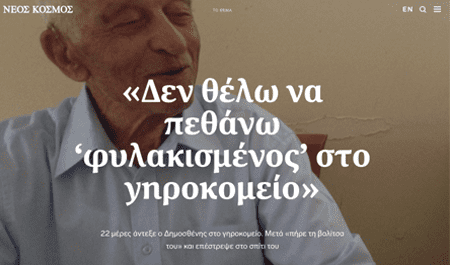As a specialist in local area coordination NDIS support, the team at Nextt pride themselves on helping empower people with disability. One of the things we love most about our jobs is seeing our participants grow and transform their lives. Here are three ways our programs have helped participants thrive, according to our NDIS local area coordinators.
1. Living independent lives
One of the key objectives of all our local area coordination NDIS programs is to help participants lead independent lives. With her adult daughters having flown the nest, 48-year-old Sandra Cooper lives alone in Merryland, New South Wales. When her eyesight began rapidly deteriorating due to a genetic eye condition known as Aniridia – which eventually rendered her completely blind in her right eye – she knew she needed some help.
With her loss of vision, completing simple tasks around the home and in the local community became quite difficult, so she enlisted the help of Nextt. Through Nextt and our NDIS local area coordinators, Sandra receives support coordination and direct support services including community access and domestic assistance, as well accessing home modifications through the NDIS and Housing Commission so she can cook her own meals independently.
“With the NDIS, in a short space of time going from seeing to not seeing … the support has helped dramatically.”
For 58-year-old Elizabeth Sherar, living with Cerebral Palsy and juggling a full-time job often meant that she had to rely on her parents to help her with errands. Thanks to the support she received from Nextt – which was funded as part of her National Disability Insurance Scheme plan – Elizabeth has been able to access the community and get travel assistance. With the help of her NDIS local area coordinator and other Nextt staff members, Elizabeth has been able to do her own shopping and banking, as well as get out into the community and go to places like the zoo and the cinemas.
“It’s been fantastic because I don’t have to rely on my parents as much and now when I go to the bank, they know me, just like when I go shopping I go into certain shops… It’s the best thing that’s ever happened.”
2. Connecting with the community
Many people with disability experience isolation due to lack of access and mobility. At Nextt, we love seeing our participants become more connected to their communities. With the help of our local area coordination NDIS specialists, our participants are able to socialise with others and pursue their passions.
For Elizabeth, her Cerebral Palsy has made it difficult for her to travel comfortably on public transport, which has prevented her from socialising with others. Thanks to her Nextt
travel assistance support, Elizabeth can safely and comfortably get to where she needs to be, as a passenger in cars owned by her support workers.
An avid fan of music from the 40s right through to the 80s, Elizabeth enjoys bonding over her passion for music.
“I listen to the local radio station in Melbourne in the eastern suburbs and they’re so intrigued with my music knowledge… Next door to the station there’s a little cafe, so once a month one of the presenters invites me up there to have a coffee and discuss music and the station,” she says.
Being able to connect with her support workers and the presenters at the radio station has been a joy for Elizabeth, and is something she really looks forward to each month.
3. Creating the change they want to see
At Nextt, our local area coordination NDIS programs empower participants to create a positive change in their own lives. Perhaps one of the greatest markers of our success is when our participants help others within their own communities.
For 47-year-old Sandra, this meant helping other people living with vision impairments. After noting a lack of social activities for people over the age of 40 who were living with vision impairments, Sandra realised she wanted more opportunities for social interaction – and that others must feel the same. Through speaking with her NDIS local area coordinator, Sandra was able to partner with Vision Australia to establish her own ten-pin bowling group for people with vision impairments. The group, which attracts roughly seven members for each gathering, meets once a month for a friendly game at the bowling alley, followed by a cup of coffee.
“I really look forward to it,” says Sandra.
For more information about our Nextt NDIS local area coordinators and our support coordination services, get in touch with our friendly team today.



